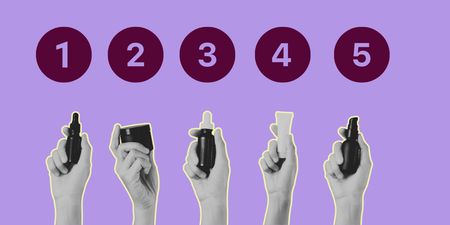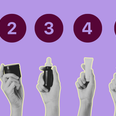Have you heard the phrase brain rot before?
It has been sneaking its way into many people’s everyday vocabulary but what exactly does it mean? Before anyone starts freaking out, don’t worry it’s not a disease.
Though not an illness you may still have contracted a case.
What does it mean?

It’s a phrase used to describe content considered to be of low value or has a negative effect on the person viewing it and often comes as a side effect of doom-scrolling or being chronically online.
Though associated with memes, the phrase itself ironically has become a meme and now a genre of content.
Dr Neil Jeyasingam is a psychiatrist who has examined the use of video games as therapeutic tools and has a keen interest in social media.
He explains brain rot has two different definitions.
“The idea of indulging and absorbing large amounts of irrelevant, low-quality information that is thought to be associated with deteriorating functioning and a loss of intelligence, hence the brain rot,” he said.
The second is the content that comes to mind when you think of the two words.
“When you are repeatedly exposed to media in a particular field, in a particular vein or a particular situation, you tend to associate other things with that,” he adds.
Can I have an example?
@joshlunchbox GO BACK TO THE DIGIT REALM YOURE NOT MEANT TO BE HERE #thousandyardstare #chronicallyonline #brainrot #studying #student #library #real #relatable ♬ messj is better than ronaldo – kiluadraws
Stick with us now this is going to be a strange one to explain.
The TikToker who goes by @joshlunchbox posted a video that showed him sitting in what appeared to be a library.
In the caption he said he had looked up from studying and thought he’d “finally developed internet brain rot” as he panned the camera to show a 1948 book by Norman Mailer called “The Naked and the Dead.”
The cover of the edition featured an illustration known as ‘The 2,000 Yard Stare’ created by artist and war correspondent Thomas Lea in 1944. It depicts an American soldier who has seen the horrors of war.
The image has since become associated with an online meme dubbed ‘1,000 Yard Stare,’ often used as a light-hearted response by users who have seen a social media post they wish they never had.
In a full-circle moment, this is exactly the phenomenon that Dr Neil Jeyasingam described.
Is brain rot bad for us?

Well according to the Newport Institute, it’s not good.
Their research has shown that the internet can produce both short-term and long-term cognition issues related to attention and memory.
Repeated scrolling can have a negative effect on an individual’s capacity to encode and retain information.
On top of this constant overstimulation can lead to a reduced attention span.
For example, according to a study of 1,051 young adults between 18 and 27 years old, social media addiction has a significant negative association with executive functioning skills such as planning, organisation, problem-solving, decision-making, and working memory.
READ MORE:
- The Princess Diaries actress gives exciting update on the third movie
- Netflix releases first look at Lindsay Lohan in Irish Wish
- Watch: Netflix has finally given fans a glimpse at season three of Bridgerton


















































